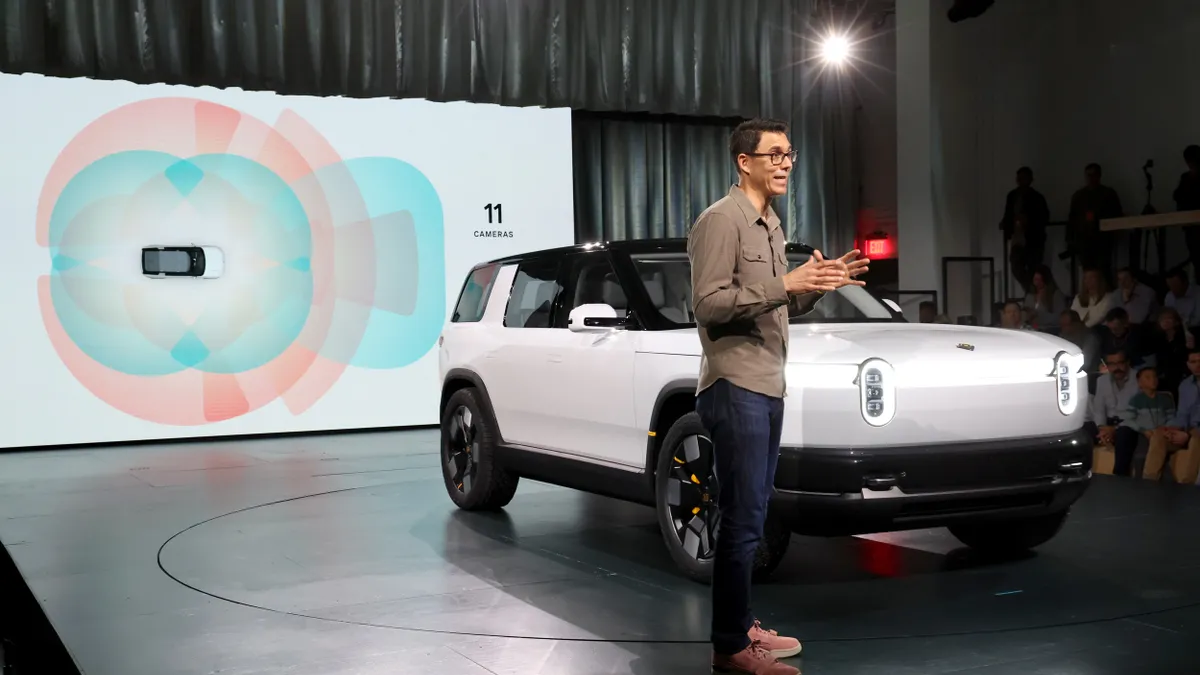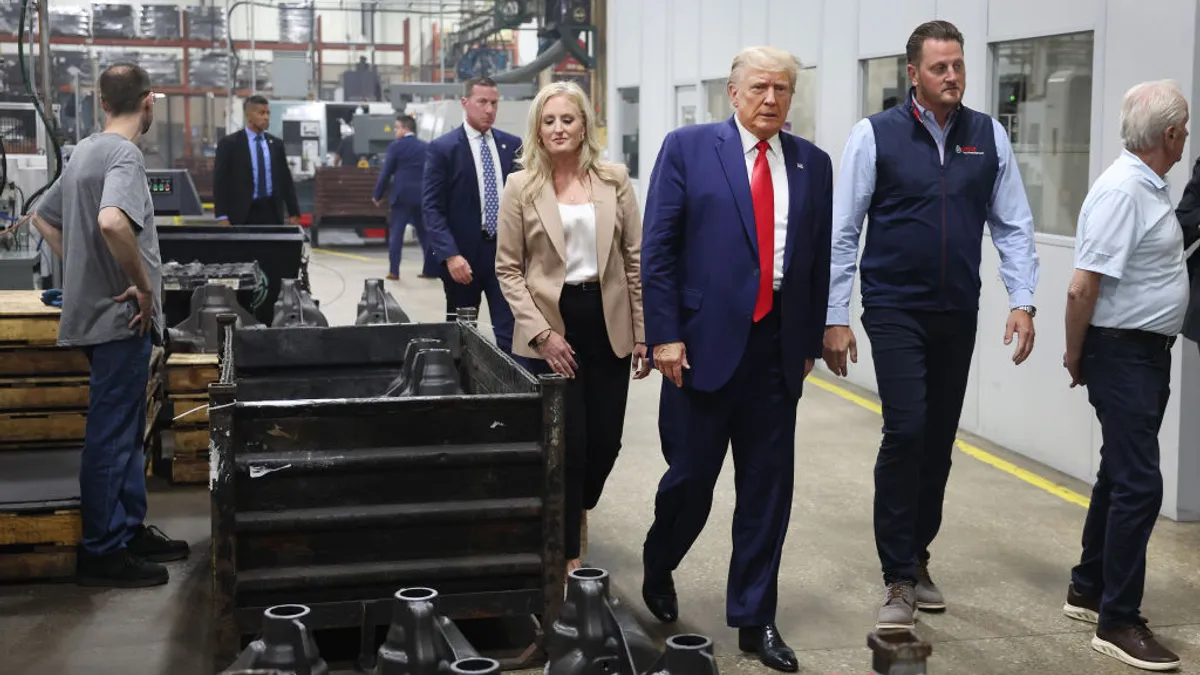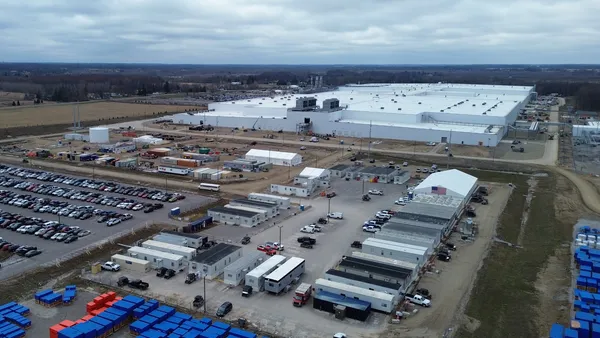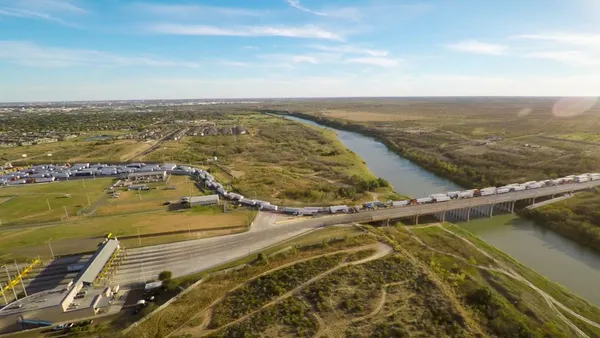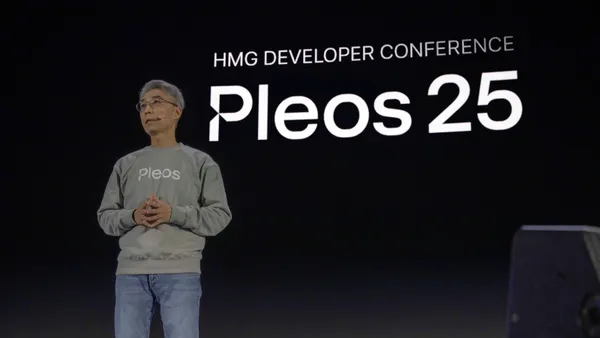Volkswagen Group and Rivian Automotive launched their joint venture on Nov. 13, creating a new company called “Rivian and VW Group Technology.” The new company will focus on developing a electrical/electronic architecture and software for electric vehicles that each automaker will utilize.
The news, which was announced in a press release Tuesday, lifts the veil on one of the largest automotive deals this year, providing more details on its goals, leadership and financial structure. And with the deal finalized, Rivian now expects to get a injunction of cash, while Volkswagen Group gains access to key technology.
In the long-term, the total deal’s size is now expected to reach $5.8 billion by 2027 — 16% larger than the $5 billion by 2026 initially estimated — provided certain technological milestones are met.
The larger deal size comes as the parties negotiated financial details, timelines and premiums, then tweaked valuations accordingly, Rivian CFO Claire McDonough told investors in a call on Tuesday.
More immediately, the electric vehicle startup will get a $1.32 billion cash payment from Volkswagen Group in November, as payment for licensing Rivian’s background intellectual property and a 50% equity stake in the joint venture, according to a shareholder letter. The November payment is in addition to the $1 billion that Volkswagen Group already paid in June for a promissory note that will be converted into Rivian equity this December.
In other words: Rivian will have raised roughly $2.32 billion in 2024 alone as a result of the deal, with $3.5 billion more expected over the next few years.
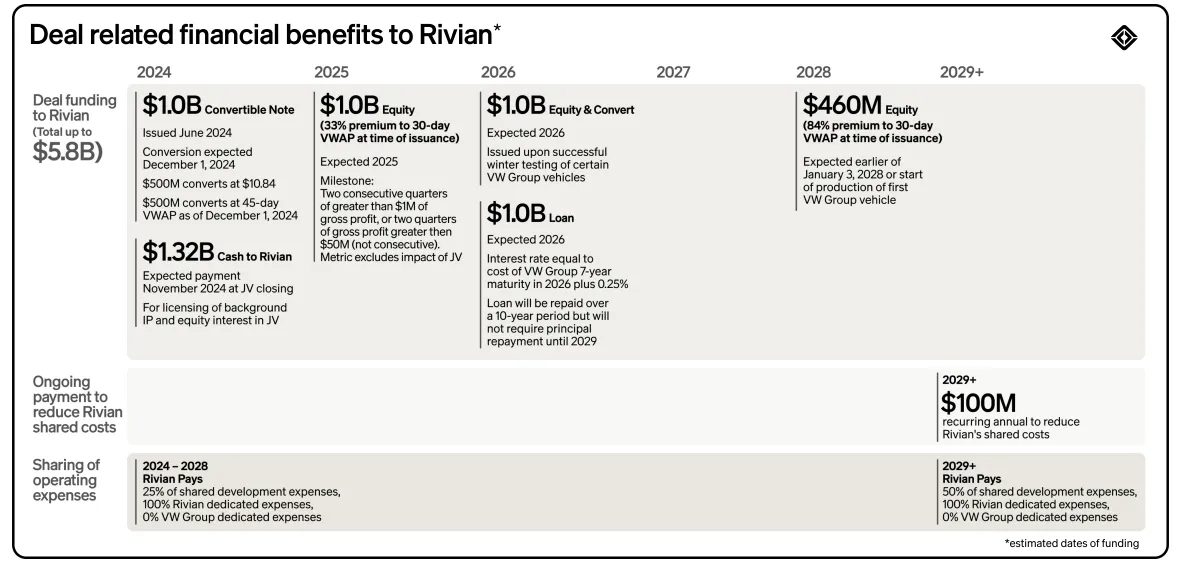
For Volkswagen, the investment marks an important step towards bringing a software-driven, next-generation EV platform into its portfolio.
While the joint venture will first focus on launching Rivian’s R2 in the first half of 2026, the resulting electrical architecture and software technology stack will also be used to launch vehicles for the Volkswagen Group as early as 2027, according to the press release.
The companies said they have already tested the concept, too. Earlier this year, teams from the two companies retrofitted a Volkswagen Group vehicle to run on Rivian’s integrated technology platform and in-market zonal hardware design.
“Today’s finalization of our joint venture with Volkswagen Group marks an important step forward in helping transition the world to electric vehicles,” Rivian CEO RJ Scaringe said in the press release. “We’re thrilled to see our technology being integrated in vehicles outside of Rivian, and we’re excited for the future.”
The new company will be headquartered in Palo Alto, California, though three new sites are in development in North America and Europe, according to the press release. It will employ about 1,000 people, McDonough said on the investor call.
Rivian and VW Group Technology will be led by two co-CEOs, pulling a technology executive from each company: Wassym Bensaid, Rivian’s chief software officer, will be co-CEO and chief technology officer, while Carsten Helbing, Volkswagen Group’s chief technology engineer, will be co-CEO and COO of the joint venture.
“I’m hugely impressed by the work done already,” Bensaid said in the press release. “While the demonstrator vehicle only scratches the surface of what is possible, it’s incredibly exciting to see what is possible when a new OEM and a legacy automaker work closely together.”



